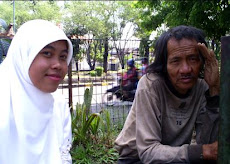Life is series of experiences and challenges. Loss is human experience and challenge we all must face. Loss requires that we give up something familiar, comfortable, and personal. Loss of a person includes death, separation, divorce, moving and changes in mental physical status (Klebanoff and Smith, 1997).
The meaning of loss is subjective, as is the process of responding to a loss. The more significant the loss, the more intense the reaction we experience. Unresolved losses in the past influent how we manage current losses. Factors such as guilt, financial issues, ambivalence, age, culture, number of current stressors, and available support systems determine we react to loss and express our grief (Gorman, Sultan, and Raines, 1996)
Families and the Grieving Process
Cultural expectation and reaction to death are closely related to family expectation and history. We life, die, grieve, and survive within a family context. Our families spiritual belief and religious practice influence how we react to loss and death and our resulting behavior. Most religious groups have customs and practice which can help survivors with the process of grieving (Moos, 1995)
Family systems, like individuals, experience symptoms of grief including changes in communication patterns, changes in family structure and changes in relationships outside the family. In response of death, family structure often changes temporarily. There may be role confusion which contributes to turmoil in the family’s hierarchy. Relationship with people outside the family often change as the family overprotects some or all members, effectively isolating people. Some families are able to reach out to other, but some withdraw from their friends and other support network (Moos, 1995)
Factors Influencing Outcomes in Mourning
Increased psychological distress
• Predeath psychiatric disorder-coping with changes is especially difficult
• Manner of death-sudden, unexpected death more difficult to manage
• Family life cycle-loss of spouse for young parent with children
• Dysfunctional relationship with deceased person
• Constricted capacity to express feelings
• Financial problems
Increased Ability to Cope
• Good health prior to death
• Sense of optimism
• Belief system that helps deal with death
• Self-sufficient
• Experience with loss
• Functional family interaction
• Supportive social network
• Adequate financial resources
Complicated Grief
Individuals who experience complicated grief are at a higher risk for a variety of health problems. Medical problems include hypertension, cardiac problems, impaired immune function, and cancer. Some people develop chronic illness behavior and hypochondriasis, which leads to a preoccupation with health and an inability to reinvest energy or interest in social relationships (Prigerson, 1997)
Psychiatric Disability as a Loss
Individual Loss
People who are psychiatrically disabled experience many losses. These losses are often in the following areas: activities of daily living, social interaction, school, employment, housing, and community participation. People with severe mental disorders also experience losses in their relationship with others. Often they have few relationships with people who are not connected to the mental health system. Their small network may be restricted to family members and other mental health client. Thus, many live very isolated lives.
Family Loss
People are both individuals and family members, simultaneously independent of and part or families. Psychiatric disability is stressful, not only for individuals but for their families (Carling, 1995; Saunders 1997).
Caregiver burden may lead to loss of independence and increased responsibility as families try to cope with day-to-day living. Deficit behaviors such as lack of motivation, difficulty in completing tasks, isolation from others, inability to manage money, poor grooming and personal care, and poor eating and sleeping behavior can be of great concern to families.
During the first stage, acknowledging the strangers within, individuals and their family members recognize that family functioning has changed. Families begin to develop their own image of the disease process and expectation of mental health professional. Many families also hope for what was in the past and for what might be in the future. It is very sad to lose a close family member to the world of mental illness. Many people do not believe that mental illness is brain disease. If the disorder begins in childhood, it is easier to think that it is a result of a bad parenting because that means good parenting should fix it. When a person experiences a mental disorder, the loss of ideal family dreams occurs. The expectation of a meaningful and productive individual and family life is shattered. All must be supported as they grieve the loss of their hopes and dreams (Badger, 1996).
The second stage, fighting the battle, include the day-to-day efforts to cope with all the changes that occurred during the first stage. Family members develop cognitive, emotional, and behavioral coping strategies to be able to live with their loved one who is experiencing mental disorder. Family members generally respect confidentiality but do need information about treatment, medication and ways to cope with certain behaviors (Badger, 1996 ; Sveinbjarnardottir and de Casterle, 1997)
In the third stage, gaining a new perspective, the intense focus on the ill family member lightens up as other members being to focus on taking care of themselves and reconnecting with other outside the family as they move through the process of grief. The family adapts to their changed circumstances and continues to function successfully (Badger, 1996)
Losses that occur More frequently Among the Elderly :
loss of health
loss of loved one
loss of hearing and vision
loss of status
loss of work
loss of income
loss of friends
loss of cognitive skills
loss of home
loss of mobility
The Nursing Process
Assessment
Assessment of clients in the grieving or mourning process includes an accurate perception of the loss from their viewpoint. Begin by identifying the loss, be it a person or a relationship or a change in health status, roles in life, or dreams and aspiration for future.
Diagnosis
1. Possible nursing diagnoses for survivors of family member who has died :
• Anticipatory grieving
• Dysfunctional grieving
• Social isolation
• Altered role performance
• Risk for altered parenting
• Ineffective family copying : compromised
• Family copying : potential for growth
2. Possible nursing diagnoses for children of divorce :
• Altered family processes
• Risk for caregiver role strain
• Family copying : potential for growth
3. Possible nursing diagnoses for adolescent :
• Impaired social interaction
• Self-esteem disturbance
4. Possible nursing diagnoses for middle adults :
• Impaired adjustment
• Self-esteem disturbance
• Health seeking behavior
5. Possible nursing diagnoses for late adults :
• Spiritual distress
• Social isolation
• Hopelessness
Nursing Interventions
• Encourage people to express their feeling about the loss and help them identify their greatest fears concerning the loss.
• Help them recognize that all these feelings are normal part of grieving.
• Discuss the active process of grieving as they meet new challenges in copying.
• Let them know that you understand grieving takes a great deal of time and energy.
• Role playing for anticipate these painful events.
• Assist survivor to identify goals that are unattainable because of the loss while encouraging realistic goal setting.
• Explore the ways in wich social support systems have changes as a result of the loss or death.
• Spiritual care includes helping grieving persons to seek new meanings in both life and death.
• Guide them through the process self-reflection as they think abaout what has happened to them.
• If children are involved in the grieving process, answer their questions associated with loss. Use clear words, such as dead or died.
• For families, assist them in redefining roles, responsibilities, and function within the family.
• Teach them ways to cope with deficit behaviors and intrusive or acting out behaviors by their loved one.
Evaluating
• To accept death as a process of life enables other nurses to support people through this final stage of growth.
• Nurses must be willing to talk openly about death as well as accept their own mortality.
References:
Fontaine & Fletcher. 1999. Mental Health Nursing 4th edition.California :Addison Wesley.
Deborah Antai-Otong. 1995. Psychiatric Nursing Biological & Behavioral Concepts. USA : Sounders.
Stuart, G.W. & Sundeen S.J. 1995. Principle and Practice of Psychiatric Nursing. St. Louis, Missiouri : Mosby Year Book.
Yosep, Iyus. 2009. Keperawatan Jiwa edisi Revisi. Bandung: Refika Aditama.
16 Des 2009
Langganan:
Posting Komentar (Atom)




Tidak ada komentar:
Posting Komentar